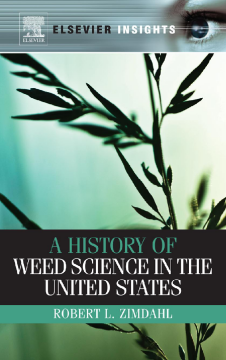
Additional Information
Book Details
Abstract
It is important that scientists think about and know their history - where they came from, what they have accomplished, and how these may affect the future. Weed scientists, similar to scientists in many technological disciplines, have not sought historical reflection. The technological world asks for results and for progress. Achievement is important not, in general, the road that leads to achievement. What was new yesterday is routine today, and what is described as revolutionary today may be considered antiquated tomorrow.
Weed science has been strongly influenced by technology developed by supporting industries, subsequently employed in research and, ultimately, used by farmers and crop growers. The science has focused on results and progress. Scientists have been--and the majority remain--problem solvers whose solutions have evolved as rapidly as have the new weed problems needing solutions. In a more formal sense, weed scientists have been adherents of the instrumental ideology of modern science. That is an analysis of their work, and their orientation reveals the strong emphasis on practical, useful knowledge; on know how. The opposite, and frequently complementary orientation, that has been missing from weed science is an emphasis on contemplative knowledge; that is, knowing why. This book expands on and analyzes how these orientations have affected weed science’s development.
- The first analytical history of weed science to be written
- Compares the development of weed science, entomology and plant pathology
- Identifies the primary founders of weed science and describes their role
"An excellent overview of how the recent emergence of the discipline of weed science came about in the 1950s and what has occurred since then to establish an origin, identity, and direction that will aid present and future weed scientists in how to best practice their discipline… The book presents key individuals and organizations, weed science founders, presidents of the Weed Science Society of America, university programs, and professional societies, as well as the agrochemical industry and public policy in an objective, lucid, well-documented manner… Highly recommended." --CHOICE
"The area of weed science is worthy of a historical perspective, but there is only rather limited coverage, compared with entomology and plant pathology. This is surprising, given the importance of weeds in causing losses in both crop yield and quality and the importance of the global herbicide market. This rather short but intriguing book provides an interesting journal throught he history of weed science in the USA in its early chapters." --The Journal of Experimental Agriculture
